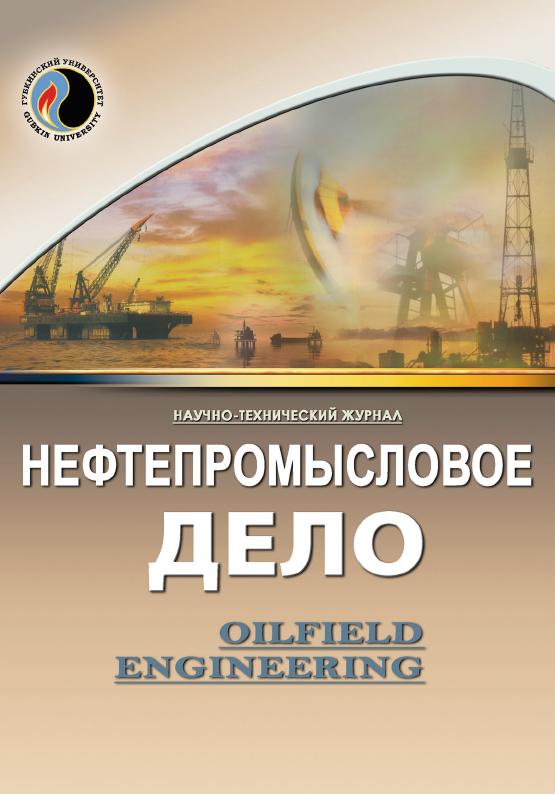Analysis of the conditions for the use of hydrogeological methods in the reservoir engineering of oil fields
UDC: 553.982.2
DOI: 10.33285/0207-2351-2022-12(648)-40-44
Authors:
LYALIN ALEXANDER A.1
1 Tyumen Petroleum Research Center, Tyumen, Russia
Keywords: hydrogeological methods, hydrogeological control, waterflooding control, well water encroachment, reservoir engineering control, hydrochemical ratios, remedial cementing, subsurface use, associated-extracted waters, reservoir waters, water compatibility
Annotation:
The article considers hydrogeological control methods in the reservoir engineering of oil fields from the point of view of their application conditions. It is shown what are the limitations of their use in the control of waterflooding of oil fields and control of well water encroachment. The noted conditions for the use of methods and existing limitations are supported by examples. The essence of hydrogeological methods is described, which consists in the analysis of changes in time and space of the chemical composition and physical properties of associated-extracted and reservoir waters. A promising direction of research is indicated – the use of hydrochemical ratios in the analysis of the waterflooding process instead of simply changing the concentrations of cations and anions over the area. The geography of application of methods and main specialists of the direction are shown. It is noted that these methods were widely used in the Soviet period and are especially relevant for use at the present time. The advantage of hydrogeological methods is to conduct research without stopping the operation of wells and without the using of any special measures.
Bibliography:
1. Gidrokhimicheskie metody analiza i kontrolya neftyanykh i gazovykh mestorozhdeniy / V.V. Mulyak, V.D. Poroshin, Yu.P. Gattenberger, L.A. Abukova. – M.: GEOS, 2007. – 245 s.
2. Lyalin A.A. Rol’ monitoringa v upravlenii ekspluatatsiey podzemnykh vod // Sb. nauch. tr. III nauch.-prakt. konf. po voprosam gidrogeologii i vodoobespecheniya. – Izhevsk: MarShak, 2021. – S. 39–44.
3. Neftegazopromyslovaya geologiya i gidrogeologiya / S.B. Vagin, V.G. Kanalin, G.A. Lanchakov [i dr.]. – M.: Nedra, 1997. – 366 s.
4. Ismaylov F.S., Gadzhiev F.M. Nauchnaya osnova vybora gidrogeokhimicheskikh kriteriev kontrolya i regulirovaniya razrabotki zalezhey nefti Yuzhnokaspiyskoy vpadiny pri ikh zavodnenii morskoy vodoy (na primere mestorozhdeniya Gyuneshli) // Georesursy, geoenergetika, geopolitika. – 2012. – № 1(5). – URL: http://oilgasjournal.ru/vol_5/ismailov.html
5. Oddo J.E., Tomson M.V. Method predicts well bore scale, corrosion // Oil & Gas J. – 1998. – June, 8. – P. 107–114.
6. Kartsev A.A., Vagin S.B., Shugrin V.P. Neftegazovaya gidrogeologiya. – M.: Nedra, 1992. – 208 s.
7. Mulyak V.V. Geotekhnologicheskie osnovy analiza i kontrolya razrabotki neftyanykh mestorozhdeniy po promyslovym gidrogeokhimicheskim dannym: avtoref. dis. … d-ra tekhn. nauk: 25.00.17. – M., 2008. – 35 s.
8. Abukova L.A., Abramova O.P., Varyagova E.P. Gidrogeokhimicheskiy monitoring razrabotki mestorozhdeniy uglevodorodov // Georesursy, geoenergetika, geopolitika. – 2015. – № 2(12). – URL: https://cyberleninka.ru/article/n/gidrogeohimicheskiy- monitoring-razrabotki-mestorozhdeniy-uglevodorodov?ysclid= l1xcgvmc6k
мониторинг разработки месторождений углеводородов // Георесурсы, геоэнергетика, геополитика. – 2015. – № 2(12). – URL: https://cyberleninka.ru/article/n/gidrogeohimicheskiy -monitoring-razrabotki-mestorozhdeniy-uglevodorodov?ysclid=l1xcgvmc6k

